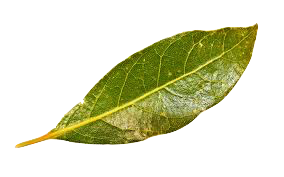 And by the river upon the bank thereof, on this side and on that side, shall grow every tree for food, whose leaf shall not wither, neither shall the fruit thereof fail; it shall bring forth new fruit every month … and the fruit thereof shall be for food, and the leaf thereof for healing. Ezekiel 47: 12 Plants played many roles in Biblical times, as they do today, for food, personal beauty, hygiene and ritual, and as aids to healing. Israeli botanical scholar Michael Zohary maintains that, “Although healing by plants in not explicitly mentioned in the Bible, herbal remedies were numerous and specific. The ultimate healer was God, and prayer was therefore the remedy most often prescribed.” Because mentioning medicinal uses of plants would defy the belief in God’s exclusive healing power, they were rarely mentioned in Scripture. And indigenous knowledge of medicinal properties of herbs and their uses in healing belonged to the women. In Talmudic literature, about 70 plants are mentioned as having medicinal properties, including olives, dates, pomegranates, quinces among fruit – garlic, beet, hyssop, cumin, and fennel-flower among vegetables and spices. In addition, wild plants are mentioned which were used principally for remedial purposes. One such plant is the sweet bay or bay laurel (Laurus nobilis), a tall, conical evergreen tree that abounds on Mt. Carmel and in the stony soils around the Galilee. The leaves of the bay, when broken, emit a sweet scent, and are used to flavor Mediterranean cuisine. In the ancient world, oil of bay was used externally in treating wounds and healing bruises and was also drunk in a tea for digestive ailments. The Biblical Garden grows a potted specimen of bay laurel, and it spends the winter indoors. If you want your own little evergreen supply for cooking, they are commonly available in any garden center in the spring, and can easily be maintained in a sunny window. The fresh leaves are very mild and do not develop their full flavor until several weeks after picking and drying. |
AuthorsMichael Schlesinger is Temple Sinai’s Biblical Gardener. Mike has been gardening since he was eight years old. He used to grow grape vines and make wine when he lived in California. He now tends to our garden, continuing the traditions started by Catherine Walters. Archives
March 2020
|

Affiliated with the Union for Reform Judaism
30 Hagen Avenue • Cranston, RI 02920 • 401-942-8350 Office: dottie@templesinairi.org Rabbi Jeffrey Goldwasser: [email protected] |
Want to sign up for the weekly Sinai Scroll email?
Click here to receive weekly updates on Temple services, events and a message from the Rabbi. |


